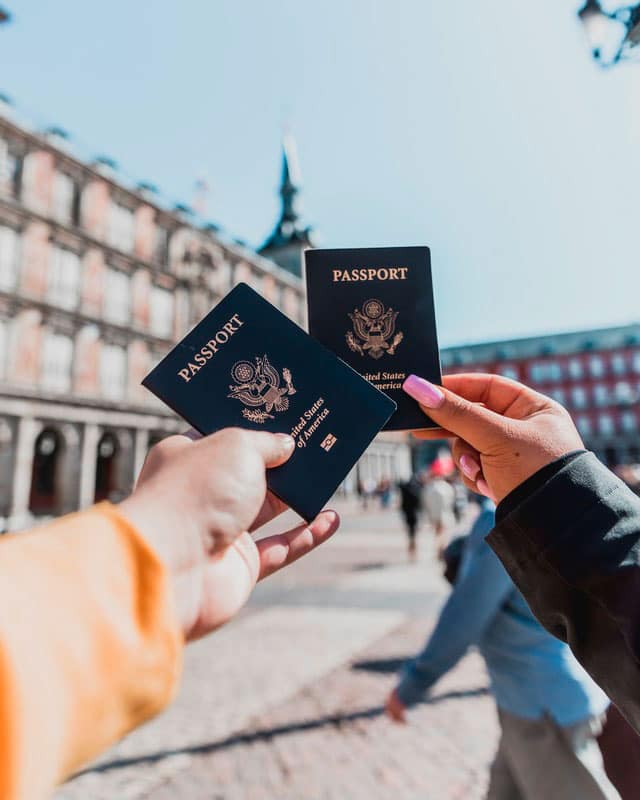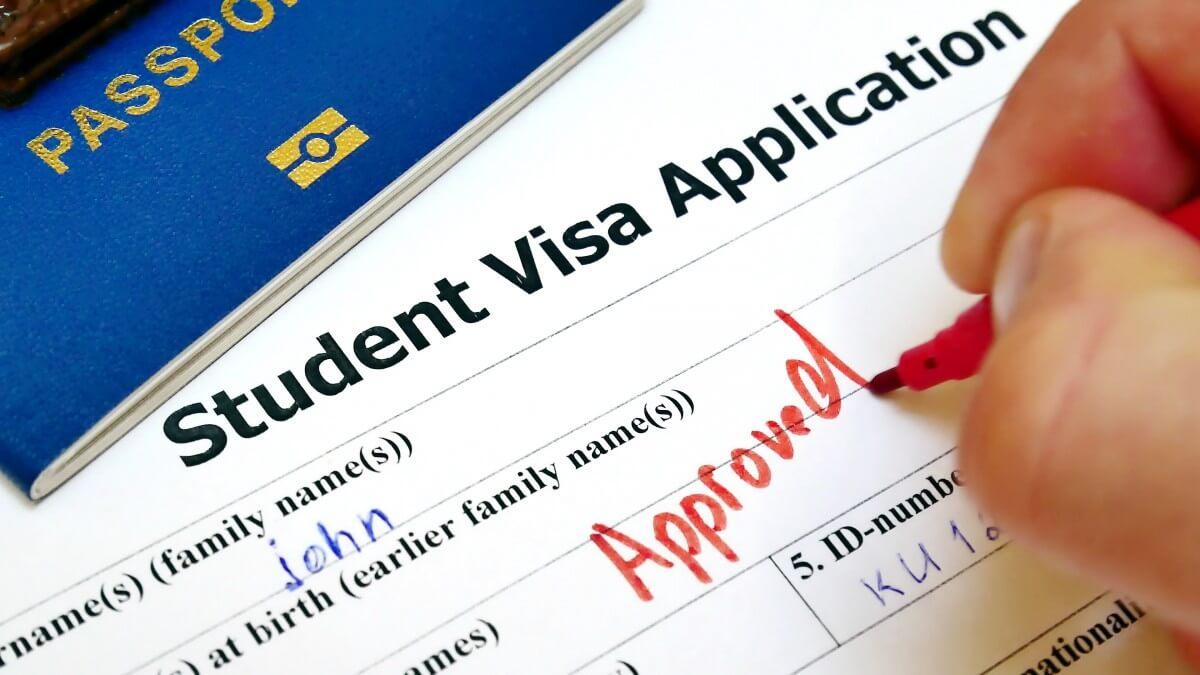If you are thinking of traveling to Spain to study, you need to be aware that there are certain documents you will need and some procedures to complete in advance.
REQUIREMENTS FOR STUDYING IN SPAIN
Passport or Identity Card?
Citizens of the European Union and some non-EU countries with close ties to the EU may not need a passport. In these cases, the national identity card or equivalent document from each country would be sufficient (e.g., DNI in Spain, carte d’identité in France, Personalausweis in Germany, etc.). However, if your home country is not an EU member and is not on the list we have provided, you will need to obtain a passport. In both cases, whether you have an identity card or a passport, the document should be valid for at least three months beyond the planned date of your return to your home country.

Tourist Visa
It allows citizens from outside the European Union to travel, enter and visit any of the 26 countries within the European Union. There are some countries that have a double treaty agreement with Spain in which you do not need to be in possession of a visa to cross the borders. If your country is not on that list, make sure to apply for a travel visa at least 3 months in advance, as these administrative procedures can take time.
In case you have a visa or residence permit in another Schengen country, you can stay in Spanish territory for a maximum of 90 days within a maximum stay of 180 days. However, before that, you will need to inform the authorities of the purpose of your stay in the country, demonstrate your financial capacity to cover your expenses during that time, not be subject to a ban on entry into Spain (registered in the Schengen Information System or the National Register), and not pose a health, public order, national security, or international relations risk to Spain or other countries with which Spain has an agreement.
Whether you have a visa or an identity card, we recommend having a photo of the document on your phone and a printed copy in your luggage. This is because if you lose or have your original document stolen, this will make it easier to obtain a replacement.

Student Visa
If you plan to stay in Spain for more than 90 days, you will need to apply for a student visa. There are two types of student visas: one for short-term stays (from 91 days to 180 days) and another for long-term stays (over 6 months). The requirements are the same as those for a regular tourist visa: you must not be a citizen of the European Union, have no entry ban into Spain, and have sufficient financial means to cover your stay.
To obtain a long-term visa, you will also need to have no criminal record in Spain and the countries where you have resided for the last five years for offenses under Spanish law. Also, if you have a disease that could have serious public health implications (according to the International Health Regulations of 2005), you will not be able to obtain a long-term visa, even if you meet the other requirements. In addition, to process this visa, you will need to have private medical insurance with full coverage.
Regarding the studies you will undertake in Spain, you will need to provide proof of your enrollment. You can request this certificate from the school. To make it easier, we ask you to pay the full program fee (in some cases, 50% is sufficient) and enroll in a course with a minimum of 20 lessons per week.
Confirmation of Accommodation
In your visa application, you will need to include confirmation of your accommodation address during your time of study in Spain. Our school offers different accommodation options. For long-stay students, the most recommended option is a shared apartment with other international students. In the confirmation letter of enrollment and payments that we will send you for your student visa application, we will include the address of your accommodation during your stay in Spain.
Preparing Visa Documents
Before starting the process to apply for a student visa, we recommend that you contact the nearest Spanish Embassy or Consulate to inquire about the specific requirements and documents. Properly preparing the documentation usually facilitates visa approval.
Although you may not need a visa to study in Spain, you may require the following documents:
European Health Insurance Card or Health Insurance
EU citizens can apply for a European Health Insurance Card on this website; the form is straightforward to fill out, and you will receive the card at your home address in a few weeks (although it’s better to apply well in advance).
For non-EU individuals who cannot obtain a European Health Insurance Card, we recommend that you obtain private medical insurance for your trip. Private healthcare in Spain can be quite expensive, and if you have an accident, you will be responsible for the expenses.
Additionally, on an exceptional basis, you may be asked to present medical certificates required by the Ministry of Foreign Affairs, so before traveling, you should visit their website or ask your Embassy/Consulate.
Travel Insurance
Additionally, purchasing travel insurance can be a good option. This type of insurance covers theft, loss, or damage to luggage, missed flights, family emergencies requiring an early return home, and more. This insurance is important when you plan to stay in the country for several weeks or want to be sure that everything is covered in case of unexpected events.
Minors
If you are a minor traveling without your parents, in addition to all these documents, you will need a certificate from your parents or the person exercising parental authority, confirming that they are fully aware of your trip. Likewise, if you are a minor traveling with your parents or one of them, border agents may check your documents or request explicit authorization from your other parent to ensure that custody laws are not being violated or the real reason for your trip.
Health Issues
It is recommended that individuals with specific health conditions travel with the necessary medications for their stay, including double the required amount, and carry a document that includes: emergency contact information (name and phone number of your doctor) and details about prescribed medications and doses so that others can help in case of need.

Traveler Registration
In some countries, it is recommended to inform the Consulate or Embassy in the country you are traveling to, providing your data and all information related to your stay in the country. This is done so that, in case of an emergency or conflict, they can locate and instruct you on how to act (it is preventive and optional).
Similarly, we suggest that you always have the phone number of your country’s Embassy and/or Consulate in Spain.
NIE and TIE: What Are They?
The NIE (Número de Identificación de Extranjeros) is the Foreigner Identification Number, which will be automatically assigned to you when you are going to reside in Spain for more than 90 days. It is a unique identifier consisting of a sequence of numbers that begin and end with an uppercase letter (usually X or Y). It is permanent, meaning it does not expire. Normally, it will be printed on the visa issued by the Spanish Embassy or Consulate. If for some reason the NIE is not on the visa, when you arrive in Spain, you will need to apply for it by appointment.
The TIE is the Tarjeta de Identificación de Extranjeros (Foreigner Identification Card). It is mandatory for stays in Spain of more than 6 months (180 days), and you will need to renew it according to your study plans. You should initiate the application process within the first month of your arrival in Spain. To obtain the TIE, you must schedule an appointment using this link and select the option: “Police – Fingerprinting (card issuance) and renewal of long-term cards.”
On the day of fingerprinting for the TIE, you will be required to provide the following documentation:
- Official EX-17 form: You must submit this form, duly completed and signed in duplicate.
- Proof of payment of the fee (which should be made in advance according to Model 790, code 012).
- Recent color photograph.
Empadronamiento
If you plan to reside in Spain for an extended period, you can register in the city or municipality where you will be studying. The Municipal Register (Padrón Municipal) is an administrative record that lists all individuals with accommodation in the municipality. Being registered is legal proof of your residence in the municipality. To complete this process, you will need to:
- Request an appointment at the relevant City Hall to register in the Municipal Register.
- Provide all necessary documentation to justify your address (rental contract, utility bills, etc.).
- Request your certificate of registration (in many cases, this can be done online through the electronic portal of each City Hall).
You can see the prices of our long-term Spanish course programs.
Enjoy your time and learn a lot! We can’t wait to see you in Madrid!









